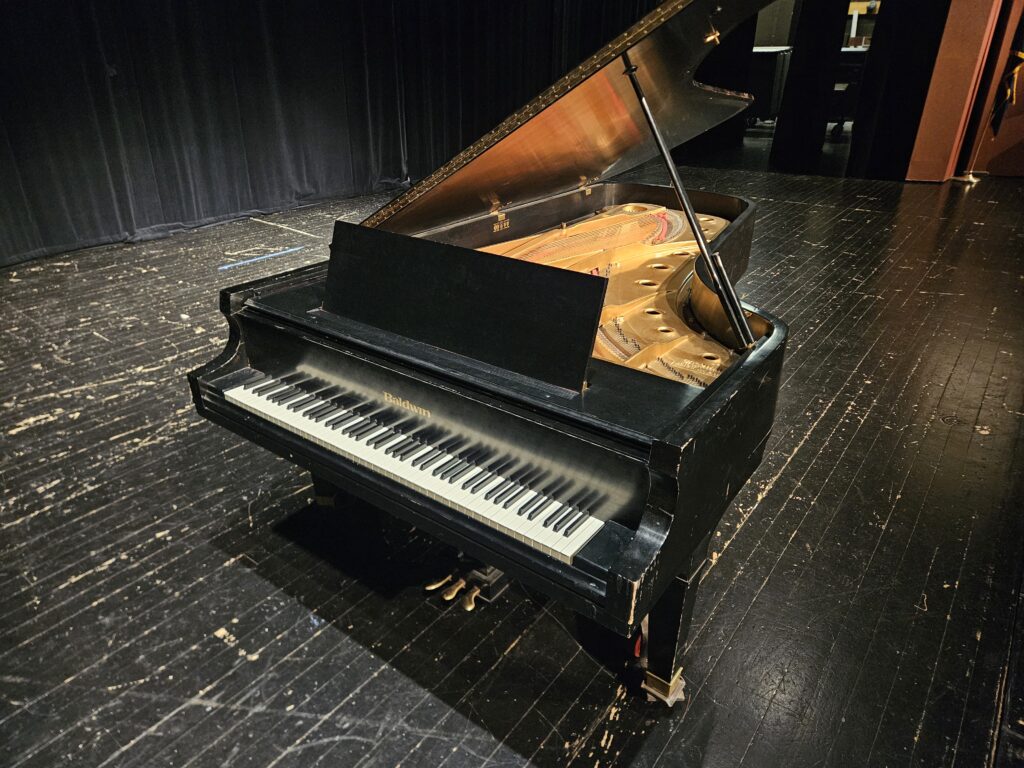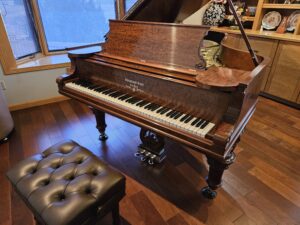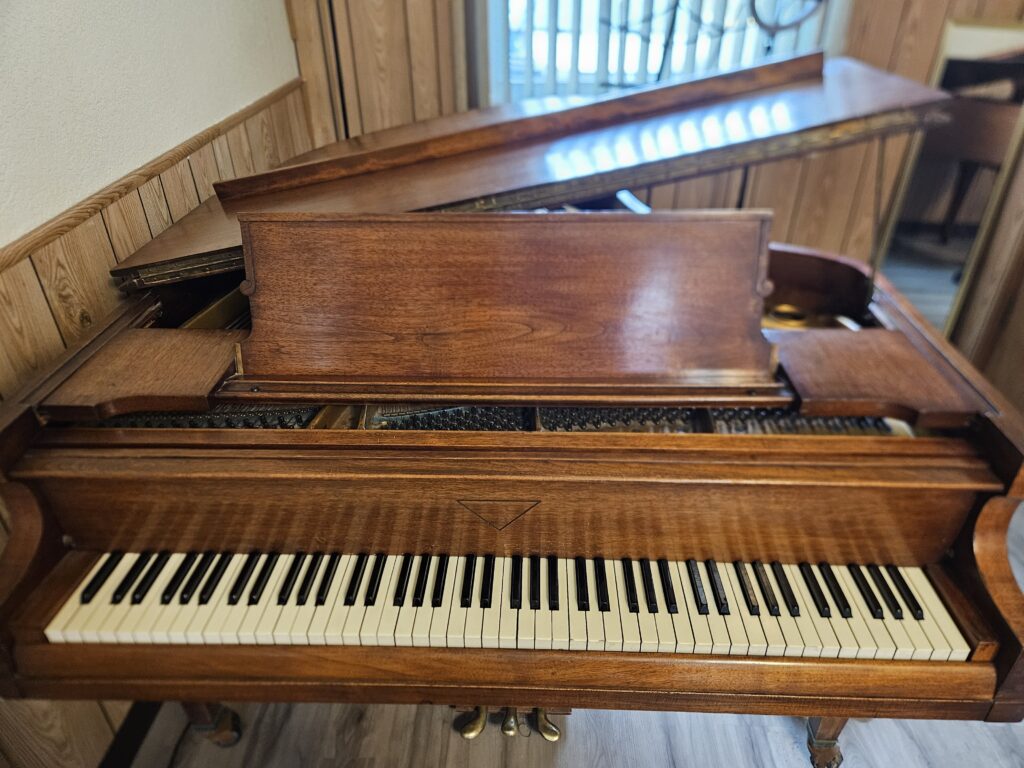When deciding how often or when you should tune your piano there are a few things to consider. Manufacturers recommend tuning every six months. However, this schedule is overkill for most home pianos and many of our clients are on a yearly tuning and checkup schedule.
The best advice I have ever heard on the topic is: Tune your piano when your favorite song no longer brings you joy.
At first glance this seems like rather ephemeral advice, but when you dig deeper it starts to explain the situation better. While playing a string instrument like a violin requires the player to actively adjust the pitch of the note they are playing, a piano does not, so people tend not to focus on it during playing.

What we do focus on is technique and emotion. When relaxing into our favorite song where technique isn’t the main factor our emotional attention is at its peak. If the piano isn’t in tune it doesn’t spark that emotional response we are expecting because something isn’t right, even if it isn’t noticed immediately.

With my favorite advice out of the way there are definitely some other things you should consider when deciding on a tuning schedule for your instrument.
Changes in temperature and humidity are the main causes of a piano losing its tune.
During a stressful event like a piano move it is the change in temperature and humidity between locations that cause a piano to go out of tune and not the move itself. If you have recently moved your piano, let it acclimate to the new space for a minimum of a week before having it tuned. Let it sit longer based on longer distance or big climate shifts. This will avoid having to tune it multiple times before it settles.
If your piano is new, it will require 2 or 3 tunings in the first six months and another before its first year anniversary to ensure it fully stabilizes. Everything within a new piano needs to reach equilibrium to ensure stability. It is a careful balance of the pull of the strings, the bend in the sound board, the pins in the bridge, the flex in the frame, and the pins in the pinblock all maintaining the proper forces during that set-in period that will help the piano hold a tune better during its life.
Seasonal changes can drastically impact your piano’s tuning. Some piano owners get their pianos tuned once a season to account for the large swings in temperature and humidity between seasons. Keeping your house a consistent temperature and humidity through HVAC methods and humidifiers/dehumidifiers will increase the stability of your piano. If entire house systems aren’t an option ask about a Dampp-Chaser system that installs these climate controls on your piano directly.
If you are putting on a performance always tune the instrument for the performance. It will go a long way and will let the performer shine without having to worry. It is stressful enough worrying about the errors within their control, so we can mitigate the others.

I would be remiss to add a recent insight into this topic during discussions:
“Tuning a piano is a compromise between everyday and never.” – Steve Toyne
Please reach out to us here at JG Piano Services and we can assist with all your tuning needs or questions.
